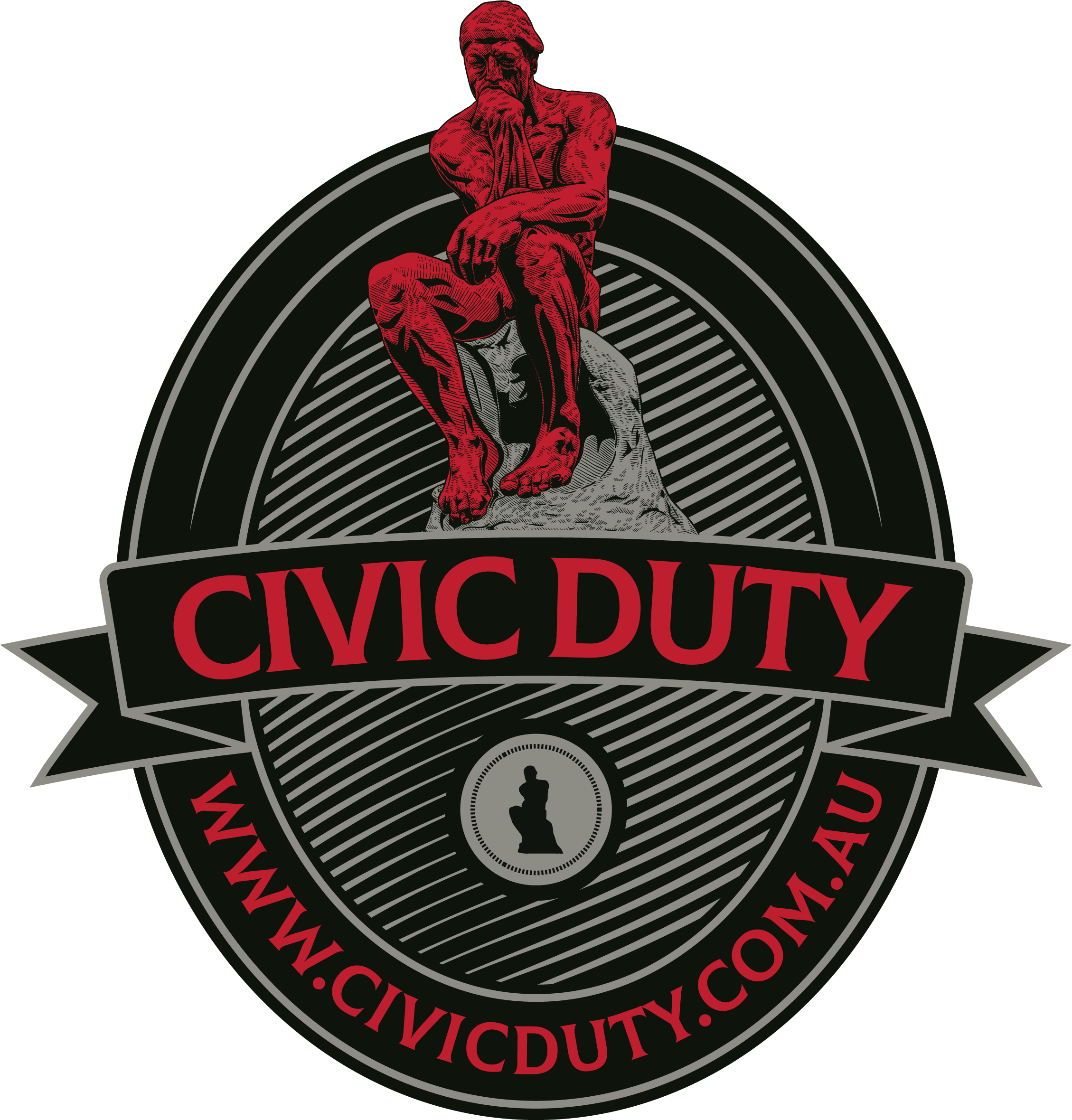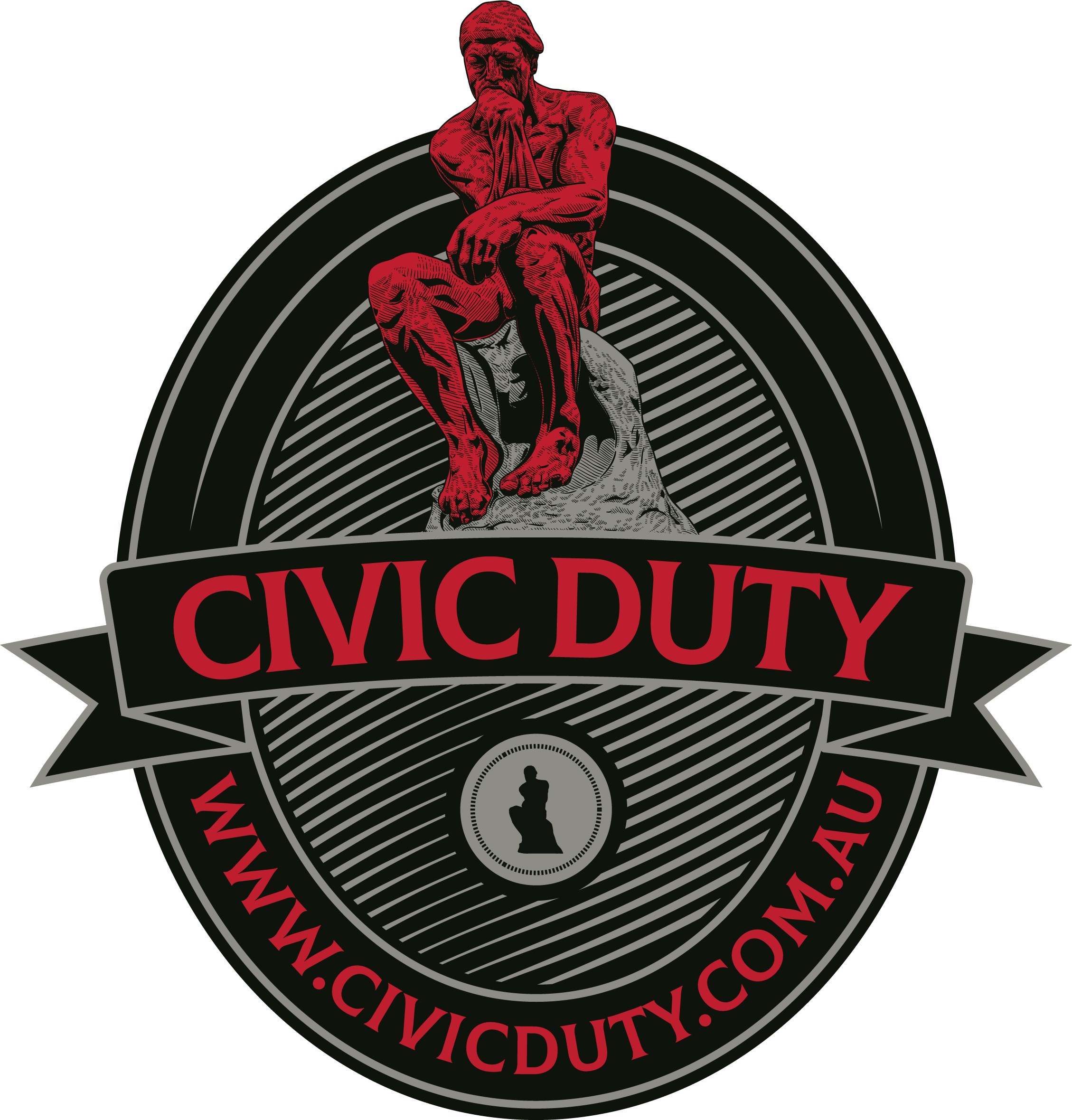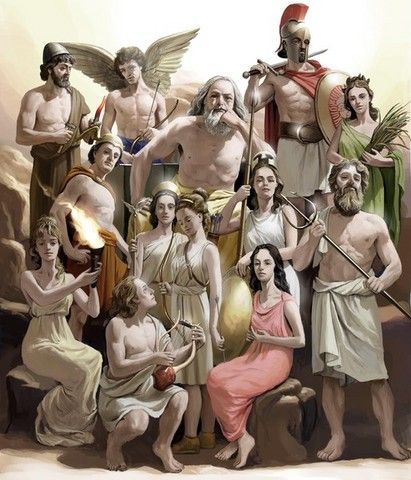It is often debated the momentousness of classical Greek myth on modern society. I would argue that Greek culture has affected our every day life, especially the Western World. It is due to the fact that Greek Myth is built upon archetypes and narratives that resonate with humanity’s collective consciousness that they will forever remain relevant, regardless of the times.
This essay will explore how Ancient Greek Myth influences modern society. This will be achieved by taking a comparative and contextual approach. It will be separated into two parts; firstly I will explain how myths can be applied to historical and current geopolitical events. And secondly, in order to demonstrate how the archetypes and narrative of the Ancient Myths still can resonate today, I will adopt a comparative model and will be reviewing the parallels between Greek Myth and American Superhero Comic Books.
In order to understand the significance of classical mythology in contemporary society, we must first comprehend the ruling system that the Greek Gods had operated within. In doing so, we can discover the framework which had existed, and therefore understand the geo-political movements that exist today.
the world of classic myth– enlightened or oligarchic?
The orthodox interpretation is that Zeus sits on top of the Pantheon as First Among Equals. In doing so, he brings balance and order to the Pantheon and mortals. I disagree with this interpretation, as I view that Zeus brings about balance and justice by imposing his will upon others. It is my assertion that Zeus, along with the other Greek Gods, practiced the oligarchical-principal and believed in benevolent despotism.
The best description of the functioning of this ‘Enlightened Aristocracy’ or ‘Oligarch Pantheon’, can be found in the Classical Greek masterpiece, Plato’s The Republic. According to Plato, a Philosopher King, who by using wisdom and reason would forever establishing what is Good and therefore bring about justice, would rule this Aristocratic-Model.[1] An Oligarchy was a system where those in power make those who are powerless their administrators. However an oligarchy is deeply divided between those who are part of the class of the elite, as they are in constant battle for domination. These elites only seek to enrich themselves in some form or another, however they can be generous if they realize that by benefits others is a coarse to ultimately achieve their own goals.[2] I would submit that this Oligarchic thesis is much more compatible with the behavior of the Gods. Examples that back my claim can be found when Zeus felt threatened by Prometheus giving Man Fire/Knowledge; he made multiple attempts to destroy Humanity. In regards to being benevolent, Zeus had on numerous occasions had raped women, but sought to compensate their degradation, as seen with the mother of Hercules (Alcmene) by promising that her son would know glory.
It is the Cults of Apollo and Dionysus can best represent the ‘Balance’, which Zeus strove to actualize. Apollo is the Sun God, thus being of light, thinking, reason, creativity and individualism, thus Order. His counterpart, Dionysus is the God of wine and ecstasy. He represents humanity’s baser instincts, of reveling in ecstasy and chaos. These are the two predominate sides of mankind, hence the world, which are in constant battle for control. This contrast of mankind is best demonstrated in Fredrick Nietzsche’s The Birth of Tragedy, where the heroic protagonist attempts to make Apollonian Order out of his Dionysian anarchic destiny. He fails and is condemned to died wanting[3]. What this indicates is that too much Apollonian order becomes oppressive and too much of Dionysian wildness is destructive, therefore a balance must be met. However, it is my contention that this order must not come from the oligarch Zeus, but from the Cult of Orpheus.
Being that Orpheus’s mother was the muse Calliope and fathered by the Thracian King Oeagrus, he is considered to be quiz-divine. What this suggests is that being that Man was made in the image of the Gods and given the gift of Prometheus Fire, mortals have the potential to achieve enlightenment and better themselves, but only if they are able to control of their Apollonian/Dionysian tendencies. The ability to do so is promising as the etymology of the name ‘Orpheus’ is translated to mean ‘Darkness’. However, in this case it would mean to be ‘mysterious’ with the indication being ‘Wise One’[4]. In order to find balance, we must first know wisdom.
the odyssey of the western world – the war on terror
The framework outlined above of Greek Mythology can be applied to the very real world of geopolitics.
It would seem that this battle to maintain balance has always been present in the American identity. As Arthur Herman has identified, the US has always seemed to have always been battling temptation to use their might for the so-called ‘greater good’ and the self-delusion that are ‘exceptional’. However, this elitist mindset was later balanced by the Apollonian goal of self-governance as reflected in the American Constitution. The Few and Many between rule by the One but to be ruled by the One balanced essentially the argument over the vision of government[5]. It my contention, that this Aristotelian mindset was the norm until the end of the Second World War, however this all changed after they the Fall of the Soviet Union.
It was Francis Fukuyama’s ‘End of History’ that came with the fall of Communism, that the Wester World spearhead by America, found itself transform from the Herculean-champion of Liberal Democracy to the oligarch King Zeus of the
Liberal International Economic Order.[6] Although there have been many turning points which can be argued that caused this transformation, it is argued that the 9/11 Terrorist Attack made the Apollonian/Dionysian dynamic come to the forefront of geo-politics. It was after the aforementioned attack that saw the world seemingly torn between the argument of the need of utter worship of the Apollonian, with National Security and Law and Order, which was represented by the creation of Homeland Security, Patriot Act, Warrantless Surveillance, use of Torture and NDAA by the Neoconservatives and Obama-Democrats or risk the Dionysius run wild, represented by Osama Bin Laden’s terrorist organization. In order to attain Order, the United States has chosen to pay homage to Ares. This came in the form of VP Dick Chaney stating “We also have to work, through, sort of the dark side…”[7] and President Obama’s “I’m really good at killing people” quip in regards to domestic use of Drones[8]. These acolytes of Ares saw the implementation of the ‘Full Spectrum Dominance’ and ‘Shock and Awe’ Doctrines of warfare. This is all in reaction to the fear of the deconstructionist disciple of Dionysius, Osama Bin Laden. Being that the Wine-God is representative of an ideology of anarchy, ecstasy and counterculture, it is reflective of Bin Laden’s vision of blood-and-violence tactics reigning supreme.
It is of no surprise that in order to suppress this international nihilistic dogma, the Order of Apollo, taken to the extreme, ultimately dictates the creation of an all-encompassing oligarchy of nation states, with the American Superpower as Zeus – King of the Gods. This International System showed the characteristics of an oligarchy by dominating small nations to do their bidding, internal factional infighting in cutthroat politics of their political parties and the fighting off threats to their sole superpower status in the forms of Russia and China. This is why the spirit of Orpheus must be adopted.
What the Orphian ethos entails, is a centrist approach to international relations. As Professor of International Relations Hedley Bull, suggested in his main work the Anarchical Society. According to Bull, States are not oligarchic power-seek but exist in a social system, governed by rules and norms. This international society ensures that individual nation-states retain their unique culture and identity, but shares the world with a host of other forces and common values that operate on a transnational basis that has the ability to influence the nature of world politics[9]. This Orphian pluralist’s position produces a universal standard that provides a balance of Apollonian Order in protecting sovereignty without slipping into the abyss of oligarchy, while keeping the dark forces of Dionysius at bay.
greek gods and american superheroes – the never-changing narratives of the ages
In order to understand how Greek mythology influences modern society is to understand the narrative of what is being communicated. According to Ian Plant, myth served the people of by-gone ages as a way to explain historical and current events, the ways of nature, serve as a proto-science, charters and religious rituals[10]. I would suggest that today’s equivalent, American Superhero Comic books, serves the same purpose. As Jason Ditter has stated, popular culture is a ways for people to come to understand their position both within the larger collective identity and within an even broader geopolitical narrative[11].
The narrative of my thesis is essentially one that states that the United States, once representing the ideal, has been seduced by the creed of Neo-conservatism. Under ‘Neocon America’ the US has adopted the persona of Marvel Comics anti-hero
Frank Castle, AKA ‘The Punisher’. This character has strong similarities of the Post-9/11 US, as Castle was once an idealistic soldier of Vietnam, upon retuning home from active duty and readjusting to civilian life, was suddenly and violently attacked. When picnicking with his family, was caught in the crossfire of gang warfare. When the legal system had failed to bring him justice, Castle decides to seek vengeance on his own terms and begins a career of vigilantism. Using his rigid military training in his one-man war against crime, he employs whatever he deems necessary; such as murder, kidnapping, extortion, coercion, threats of violence and torture.[12] As long-time Punisher writer Garth Ennis has noted, the Punisher views the world in very black and white terms and solves his problems with utter finality[13]. It is my contention that the Punisher is nothing more than the combination of Ares and Apollo.
The feared Cult of Dionysus, personified by Osama Bin Laden’s Terrorist Network, can be found in the Marvel’s Super villain ‘Carnage’, but what is most important is the his worldview. Being a psychopathic homicidal sadist, Carnage always showed violent tendencies during childhood. It was during this period of time where he acquired his nihilistic philosophy; that life was essentially meaningless and futile, and that ‘laws are only words. Spreading random bloodshed was considered tot be the ultimate expression of freedom[14]. As we can see, Carnage is a worshipper of Dionysus, as they both belief that the rules of order are to broken, just as Bin Laden had believed in his war against the Western World with his random terrorist attacks.
As stated previously, what is required is a middle-ground solution to this conflict. This is found in Orpheus, who is re-imaged as Steve Rogers’s alter ego, Captain America. Being of fail health, he was given a serum that enhanced him to peak human perfection. It could be argued that Cap can be considered to be quiz-divine also. Donning a costume of an American Flag motif, he became the national symbol of America during the Second World War. His role is to connect nationalism, internal order and foreign policy within the scale of an individual[15]. Therefore it is unsurprising that Cap becomes America’s envoy to its ‘cultural wars’. The battle over US identity is often played out, with both sides of the political spectrum praising and damning Captain America if he undermines their favored geopolitical position. That is why Cap is seen to be apolitical, as he strives to represent the ideal of what US can and should aspire to be[16]. It is due to this, I believe, that he is best representative of Orpheus, as he strives to be the non-oligarch balance that is needed. This is the ideology that Bull had mentioned above, in that Nations should be allowed to be respected in their individual culture and identity but have no right to enforce their will unto others.
Conclusion
In conclusion, it would seem that Greek Myth influence is not only still present within modern society, but is overwhelmingly so. As I have outlined above, the very same narrative and structure are still in place within the workings of the world. It is the same oligarchical system that still rules the international system, along with same tension of attempting to create a balance between the forces of Apollo and Dionysus. Furthermore, it is not only the same structure, but also the same hero-narrative being told. This is achieved in the use of the ancient archetypes, in the form of the Punisher, Carnage and Captain America that is found within Western Culture.
Bibliography
Adrahtas, Vassilis. “ Orpheus: Lecture 2,” Greek Gods and Goddesses (Sydney: University of New South Wales, January 22, 2014). Vodcast.
Bloom, A (1968) The Republic of Plato, Basic Books Inc., United States
Bull, H (1977) The Anarchical Society, Columbia University Press, United States
Dittmer, Jason. “Captain America’s Empire: Reflections on Identity, Popular Culture, and Post-9/11 Geopolitics”. Annals of the Association of American Geographers 95, no.3 (2005) 626-643.
Haynes, J (2011) World Politics, Pearson Education Ltd., United Kingdom
Herman, A (2013) The Cave and the Light, Random House, United States
Kuznick, P (2012) The Untold History of the United States, Random House, United States
Michelinie, David. “Savage Alliance.” Amazing Spider-Man 362, no. 1 (1993): 15
Morrison, G (2012) Supergods: Our World in the Age of the Superhero, Vintage Books, United Kingdom
Pearson, K (2006) The Nietzsche Reader, Wiley-Blackwell, United States
Plant, I (2012) Myth in the Ancient World, Palgrave Macmillan, United Kingdom
Richards, D 2007, The Long, Cold Dark: Garth Ennis Talks Punisher #50, Comic Book Resources, 3 February 2014, https://www.comicbookresources.com/?page=article&id=10746
Zennie, M 2013. ‘I’m really good at killing people’: New book claims President Obama joked to aides about using drone strikes’. Mailonline
[1] Bloom, The Republic of Plato, (Basic Books Inc., 1968), 224.
[2] Ibid., 223.
[3] Keith Pearson, The Nietzsche Reader, (Wiley-Blackwell, 2006), 44.
[4] Vassilis Adrahtas, “Orpheus: Lecture 2,” Greek Gods and Goddesses(Sydney: University of New South Wales, January 22, 2014). Vodcast.
[5] Ibid., 516.
[6] Jeffrey Haynes, World Politics, (Pearson Education Ltd, 2011), 36.
[7] Peter Kuznick, The Untold History of the United States, (Random House, 2012), 504.
[8] Michael Zennie, ‘I’m really good at killing people’: New book claims President Obama joked to aides about using drone strikes’. (Mailonline, 2013)
[9] Hedley Bull, The Anarchical Society, (Columbia University Press, 1977), 240.
[10] Ian Plant, Myth in the Ancient World, (Palgrave Macmillan, 2012), 24.
[11] Jason Dittmer, “Captain America’s Empire: Reflections on Identity, Popular Culture, and Post-9/11 Geopolitics”. Annals of the Association of American Geographers 95, no.3 (2005): 626-643
[12] Grant Morrison, Supergods: Our World in the Age of the Superhero, (Vintage Books, 2012), 216.
[13] Richards, David (July 11, 2007). “The Long, Cold Dark: Garth Ennis Talks Punisher #50″. Comic Book Resources. Retrieved November 14, 2008.
[14] David Micheline, “Savage Alliance.” Amazing Spider-Man 362, no. 1 (1993): 15
Jason Dittmer [15], op.cit.,p.628
[16] Grant Morrison, op.cit.,p.39


